Click to read the article in Turkish
Ahead of the Sunday's elections, we spoke with Prof. Ali Akarca from the University of Illinois at Chicago on the election atmosphere, parties' discourses and the possible effect of the economic situation on the elections.
Akarca underpins that in the past, it was the AKP (the ruling Justice and Development Party) who gave hope to the voters, while the opposition appealed to the fears of them.
Saying that this situation is reversed now, Prof. Akarca thinks that the AKP will lose votes in this election.
Two differences with the past elections
After the presidential and parliamentary elections on June 24, 2018, there will be again alliances between the parties in this election. Comparing with the previous elections, what differences do you observe with this election in terms of general atmosphere and political discourse?
Apart from the alliances, two differences stand out.
Firstly, the government used to give hope to the voters, while the opposition used to spread fear among them. This time, the situation is reversed.
In the previous elections, AKP used to state that they tripled the per capita income and will continue to increase it, saying, "Our past performances are the guarantee of our future performances."
CHP, on the other hand, used to say that the secularism and the republic are about to be lost and the people will not be able to live as they want.
Looking at the previous examples, we can say that spreading fear among voters rather than giving hope to them did not yield positive results.
The opposition parties realized this in 2015 and have abandoned such discourse since then.
On the other hand, since the referendum on the presidential system in 2017, the People's Alliance (the alliance formed by the ruling AKP and its ally, the Nationalist Movement Party/MHP) has increasingly been using the argument that we are under an existential threat.
The second difference is that the AKP, since 2015, has been excessively applying election economy*, which it did not do in its first two terms.
What encourages the politicians to apply election economy is the fact that the voters look only at the past year when they assess the situation of the economy and they give more importance to growth than inflation.
Of course, the existence of the potential for election economy does not mean that election economy will be applied, as it causes fluctuations in the economy.
If there is no need for election ecnomics, there is no point in causing instability. Besides, decreasing the inflation rates that were caused by these policies necessitates taking "strong drugs."
For this reason, parties don't prefer applying election politics if their staying in power is not in danger.
Until 2015, there was no such danger for the AKP and it did not apply election economy.
How will the threats influence the voters?
President Erdoğan threatened the opposition leaders with "applying to the judiciary," Minister of Interior Süleyman Soylu claimed that they determined 378 opposition candidates who are affiliated with the "terrorist organizations," and said they will discharge them even if they are elected. How do you think the People's Alliance's stance against the opposition parties will influence the voters?
If you remember, I told you in our interview before the elections on June 7, 2015 that many voters cast their votes in a strategic manner, namely voting for their second choices rather than first choices. The reason they do that is their desire to balance the power of the government.
If the government gives the impression that it is too strong and it will use that power excessively, this will cause a desire among the voters to balance that power, and this would be of the detriment of the government. In other words, it would backlash.
The influence of the economic situation on AKP votes
In the last year, inflation rates, unemployment and the prices of the currencies increased. Gross domestic product decreased. We met the regulatory retail points and so on. In our interview before the June 2015 elections, you said, "Every one percent increase in the real income per capita increases the government party's votes by 0.8 percent, every one percent increase in the inflation rate decreases its votes by 0.12 percent." So, can we say that this election will be more difficult for AKP than the previous elections?
Yes, for AKP, this will be the election in the worst economic conditions in their tenure, apart from 2009 local polls.
Since the interview you mentioned, I have improved and updated my modeling.
According to a more precise econometric measuring, every one percent increase in the real income per capita earns the government party one percent of the votes, if it is a one-party government. Every one percent increase in inflation causes a 0.15 percent decrease in the party's voting share. If it is ruling the country with other parties, these numbers become 0.50 and 0.12.
Since the growth per capita is negative, the inflation rates are high and there is one party in the government, we should expect the AKP to lose votes because of the economic situation.
Losses that will be caused by strategic voting and the attrition caused by being in power should be added. The advantage of holding the power negate some but not all of these.
2002 vs today
Could this be a breaking point like the 2002 elections, when AKP came to power after an economic crisis?
Firstly, we see breaking points like the 2002 elections in Turkey, after the 1994 Clean Hands investigation in Italy, and after the 2015 debt crisis in Greece, once or twice in a century.
A large part of the voters support a party that represents their economic interests and worldviews and tend to cast their votes for the party they voted for in the previous election.
So, I don't think this will be a breaking point. (EKN/VK)
*In Turkish political jargon, the term "election economy" refers to a government party making moves such as introducing tax amnesties or increasing welfare benefits to gain more votes, usually months or weeks before an election.
**This interview has originally been published in Turkish and translated into English by bianet editors. It has been shortened and edited for clarity.





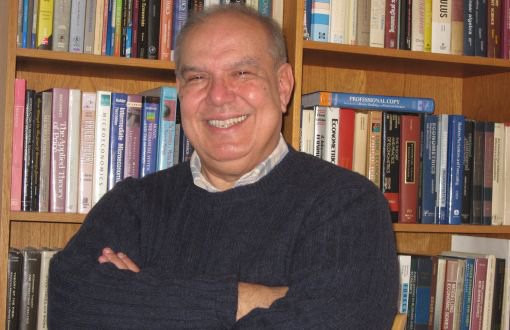
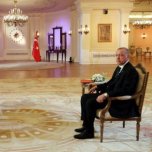

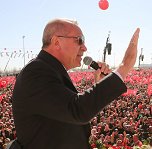
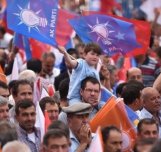
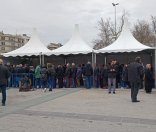

.jpg)


